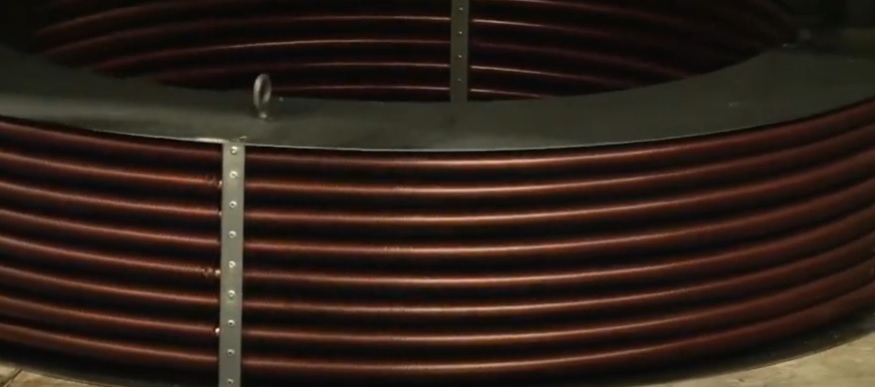Corus New Gear Steels Reduce Alloys Without Sacrificing Achievable Hardness

Corus Engineering Steels’ formula for its new gear steels: Maintain achievable hardness while using fewer alloys, thereby cutting steel costs for gear manufacturers.
Located in Rotherham, England, Corus Engineering Steels (CES) announced the new gear steels in July 2004.
"Lean alloy steels have been developed as a direct response to rising alloy prices," says James Hunt, market & product development manager for CES. "Lean alloys are by definition less costly than the higher alloy steels they replace."
As an example, Hunt says a leaner alloy steel, like an MnCr, could be as much as £182 ($327) per ton cheaper than a higher alloy steel, like an NiCrMo. The savings comes from differences in the base prices and alloy surcharges of the two steels.
"The biggest difference comes when we take into account the alloy surcharges," he says. "The prices for molybdenum and nickel are extremely unstable and very much higher than chromium."
CES develops its gear steels mainly for the automotive industry, supplying them to BMW, Eaton, Ford, General Motors, Scania, Volvo and ZF. CES’ new gear steels are, however, suitable for other industries, too.
"Examples might include gearboxes and geared motors for food processing, mechanical handling or marine applications," Hunt says.
"However, it must be recognized that there are limitations to the depth of hardness and core strength which can be achieved by a low alloy steel, hence larger diameter gears may not be suitable," he adds. "Each application should be considered on its specific requirements."
Despite these limitations, CES designed its new gear steels to behave like their higher alloy counterparts, so gear manufacturers who switch to leaner alloys don’t sacrifice performance, such as the ability to achieve a particular hardness range.
"Corus steels are typically supplied to give hardenability response of +/-4 HRc, with tighter ranges available by agreement," Hunt says. "This applies to all our steels, not just lean alloy grades."
Also, Corus’ steelmaking helps promote predictable distortion.
"The precise control we are able to get over our steelmaking processes with full computer control, gives exceptional cast-to-cast consistency of chemical composition and hardenability," Hunt says. "Hence the predictability of all our steels ensures that the manufacturers need to make fewer adjustments to their processes from batch to batch."
Hunt, however, cautions that predictable distortion is a potentiality that depends on other processes: "The amount of distortion achieved has more to do with the gear manufacturing route than it does the composition of the steel."
Still, if the route provides reliable, repeatable results, gear manufacturers could ultimately save time and money through better control of distortion because they wouldn’t have to machine their gears as much after heat treatment.
Hunt adds that the new gear steels are very clean, which promotes increased fatigue resistance and thereby increased durability.
"Fatigue and durability are influenced by surface hardness and steel cleanness," Hunt says. "The cleanness of all our steels ensures that harmful oxides and other inclusions are kept to a minimum, and it is this property that gives improvements in fatigue and durability."
"If you were to compare the fatigue performance of one of our lean alloy steels against a higher alloy steel of equivalent strength, also supplied by Corus," Hunt adds, "chances are there would be little difference as the cleanness will be the same."
He cites its MnCr steel as an example. That steel has a hardenability comparable with Corus’ 1% NiCrMo steel. The MnCr was designed to replace the NiCrMo. CES also developed its lean alloy gear steels to help improve the noise, vibration and harshness (NVH) characteristics of resulting gearboxes. Hunt couldn’t discuss details of specific tests on the NVH characteristics of gears made with CES’ new steels. Even if he provided details, NVH characteristics vary as a result of many aspects of gear manufacturing. "Particular benefits seen in NVH will depend upon the consistency of the steels being substituted and the level of control achieved over the manufacturing process."
Despite depending on manufacturing processes, the new gear steels are Corus’ effort to provide the same for less.
"Rising alloy addition surcharges and the continual focus on best value led to the development of lean alloys," Hunt says. "Expert product development ensured that reduced cost did not come at the expense of performance."
For more information:
Corus Engineering Steels
P.O.Box 50,Aldwarke Lane
Rotherham
South Yorkshire S60 1DW
United Kingdom
Phone:+(44)1709-371-234
Fax:+(44)1709-826-233
E-mail:enquiries.ces@corusgroup.com
Internet:www.corusengineeringsteels.com






